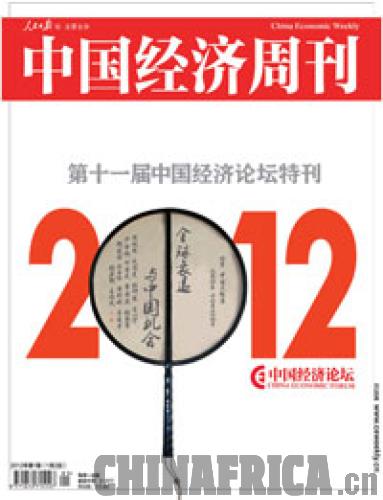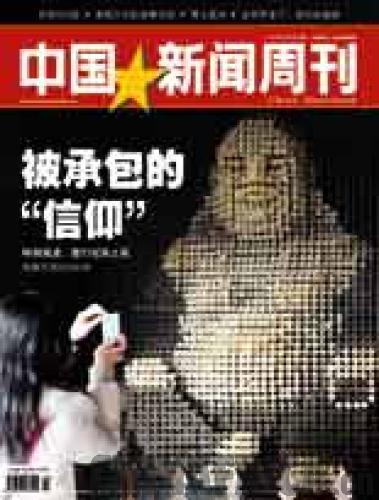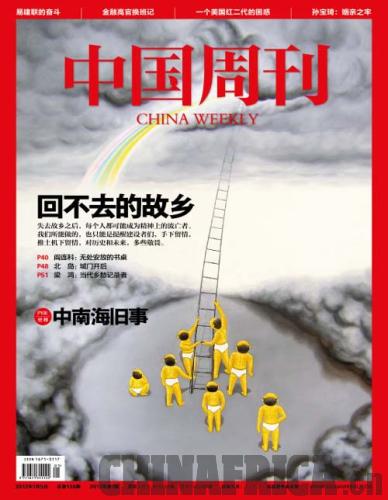| 
OUTLOOK FOR 2012
China Economic Weekly
January 2, 2012
Turbulence and uncertainty were the key words for 2011. The United States struggled to recover from its longest and deepest recession since the World War II. The debt crisis swept across the euro zone, while in Japan the economy took a beating due to an earthquake and tsunami.
China Economic Weekly in this issue predicts the economic prospects in 2012 and discusses the opportunities and challenges that lie ahead for China. Cheng Siwei, a well-known Chinese economist, is cautiously optimistic about 2012. "The world economic growth rate will definitely decline, but will not be lower than 3 percent, which means it is not the worst scenario," he said.
Threats of a world economic recession in 2012 mean a reduction in export and risks of inflation to China. However, it is an opportunity for China to speed up economy restructuring.

PROFIT FROM TEMPLES
China Newsweek
January 9, 2012
Temples have throughout time been sacred places of worship. However, in some tourist resorts, they are no more than venues for making a quick profit.
In this issue, China Newsweek looks at how to make money by contracting out a temple. Despite clear prohibition by law, investors sign contracts with local authorities and pay fees to use temples for gain. They then run temples as a business by recruiting monks who have a monthly salary and work at persuading tourists to buy high-priced incense or donating money to the divine deities.
Xiao Yaohui, a research fellow with Yunnan Academy of Social Sciences, believes the phenomenon reflects that the concept of regarding financial gain as a priority has intruded into normal religious activities, and will have a negative impact on worshippers. It needs the government's efforts for proper management of religious venues.
LANDMARK STATUE
The Beijing News
December 19, 2011
A landmark statue similar to the China Pavilion of the 2010 World Expo in Shanghai appeared on a street in Beijing. The government of the Chaoyang District where the statue is located says that it is a landmark statue of the district, but the public thinks this statue can by no means reflect local features.
Setting up a landmark statue will improve the public environment in the area. The question is, this statue was built up without asking the public's opinions and is suspected of copying the China Pavilion of the 2010 World Expo in Shanghai.
Architectures in public areas should always put cultural and aesthetic values first. If they are designed as landmarks, the architecture must be of certain aesthetic values, and is never simply a signpost.

HOMETOWN CHANGED
China Weekly
January 5, 2012
In an agriculture-oriented society, one's hometown is the ultimate resting place for both the body and soul. The magazine looks at what has changed today in China's countryside, home to millions of city dwellers.
Urbanization has seen more and more rural residents migrate to cities to seek their fortune, leaving the elderly and children behind in the countryside. With changes in countryside, people are losing their sense of belonging.
FIGHT AGAINST FAKES
Zhujiang Evening News
December 15, 2011
The State Council Information Office of China announced on December 13, 2011 that the assessment on the performance of relevant government officials will cover their work on curbing infringement cases and fake commodities. The public will also be rewarded if they report on infringement and fake cases.
Copyright and patent infringement and fake commodities have been rampant in the recent years. It's partly because of some businesses' negligence of laws and regulations; but meanwhile, it's also a result of those government departments' inaction and malpractice.
The new performance assessment shows the Chinese Government's determination to crack down on fake products. Nevertheless, this is not enough. There must be certain mechanisms to let government departments implement their duties and empower the public to supervise their behaviors and actions. |